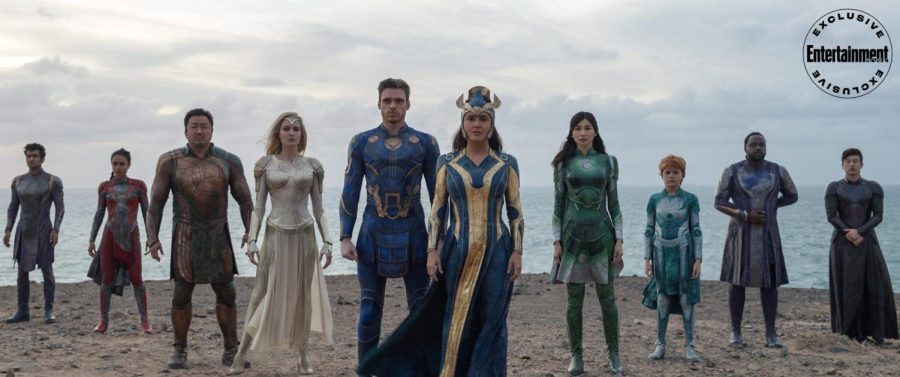“12 Years a Slave” has been getting a lot of Oscar vibes, and for good reason. This gripping adaptation of Solomon Northup’s life account was never entirely on my radar, ever since I heard of its existence a while back.
Yes, I figured it would be good, but having never seen a Steve McQueen film before and having just seen an account of slavery in “Django Unchained” last year, I wasn’t really sure what I was in for. Then the overwhelmingly positive reviews from almost every critic across the country piled on and I became more and more interested in seeking this film out.
What I got as I sat in the theater wasn’t just a movie, but something way more than that. It was an emotional ride that built up the tension from the first minute and never let go. “12 Years A Slave” was beautiful in its emotion, but brutal in its actions, which is, I assume, what director Steve McQueen wanted out of it.
While “Django Unchained” was more of a witty, snappy, revenge fantasy of the slave life in the South, “12 Years A Slave” is a darker, more dangerous type of animal that will reward you for sticking with it.
I’ve always taken a liking to films that can chronicle a period of someone’s life for years and years. Those types of characters show growth and range as they change and the world changes around them. While “12 Years A Slave” does not account for the entirety of Solomon’s life, it covers the hardest and most interesting parts.
This is the true life story of Solomon Northup, an African-American man who lived in New York state in the 1840s. He was kidnapped, stripped of his name and sold as a slave to work on a couple of different plantations. Taken away from his comfortable lifestyle and his loving family, Solomon learns that the only way to regain the life he once knew was to keep his head down, do as he’s told and pray that his masters don’t beat him to death. The story itself is enough to make us feel bad for Solomon.
Watching him in the cotton fields, scene after scene, was heartbreaking. But as heartbreaking as that was, I can’t even conjure up a word to describe what I felt watching him get tortured by whippings, beatings and hanging. There is a scene in the film in which we see Solomon hanging by his neck after a rage-filled overseer decides to punish him for his insubordinate behavior.
Barely staying alive and pushing off of his toes, Solomon is left hanging in the tree for hours while the other slaves and plantation dwellers go on with their day, essentially ignoring him. It’s long scenes like this that give the viewer a sickening feeling, while also being able to slowly take in and reflect on the evil nature of this environment. So many times I wanted to look away when a character got whipped. McQueen wants you to see the evil that possessed slave owners, and he does this really well.
Strong acting is ultimately what brings this film to life and what makes you care about what is happening on screen. Yes, the actions are brutal, but without the right actors to bring them about, they would be pointless. Chiwetel Ejiofor has been a consistently good actor for his entire career, but mainly sticks to supporting roles with limited amounts of meat to them.
This film gives him the opportunity to show true range and make himself remarkable. Ejiofor, as Solomon, is a wonder to behold. It’s amazing to watch as he goes from a man who has everything, to a man with nothing.
Watching him try to survive and keep a low profile so as not to be struck down and killed broke my heart, because we know he shouldn’t be there, he knows he shouldn’t be there, but there’s nothing that can be done about it. Benedict Cumberbatch and Michael Fassbender give impressive performances as the two different slave owners Solomon is sold to over the 12 years.
Cumberbatch plays a more sympathetic character than you might expect. So much so, that I was actually beginning to like him. He had a real sense of humanity to him that really brought out trust in Solomon and some of the other slaves. On the opposite side of the spectrum, we have Edwin Epps, played by Michael Fassbender.
This man represents everything evil about mankind. It doesn’t take a lot to hate him; the real trick was to make you scared of him. This was a challenge Fassbender met with his acting and he nails it.
McQueen’s goals are clear. He wants to present the audience to a world through the eyes of a man wrongly planted into slavery. Something magical is done here to make a story so sickening and dark, yet make it look so beautiful and full of life to the point where you can’t look away.
Whether you look at its deep themes of humanity or let the whole experience wash over you, you walk out of “12 Years A Slave” feeling like something hit you, letting you know that what you just witnessed was something special.







